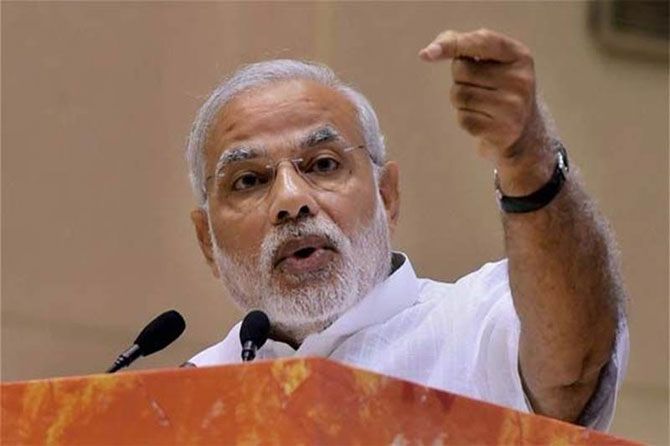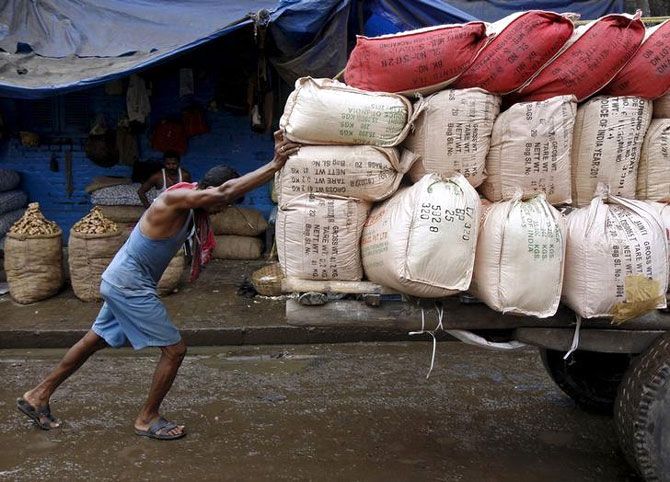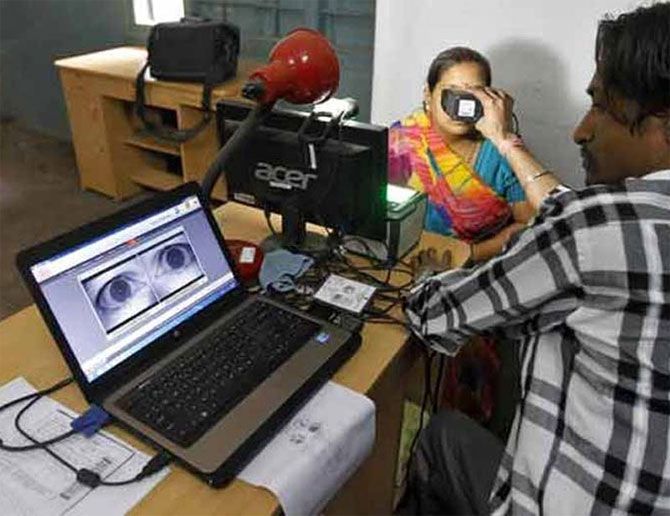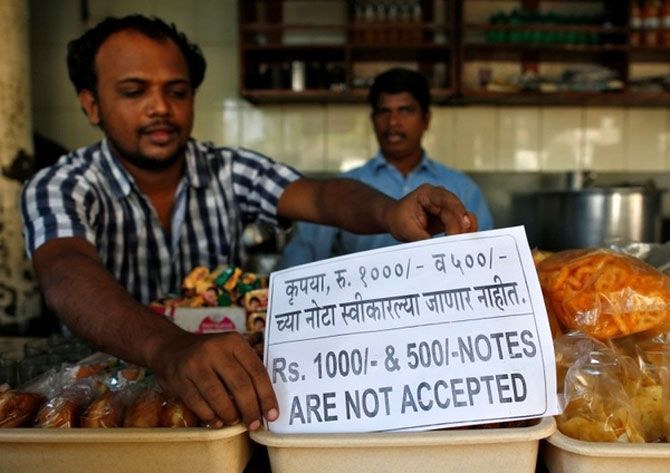Various twists and turns by govt post-demonetisation prove that it has been tall order for the PM

IMAGE: Those who felt let down by the absence of big-bang reforms started calling Modi "an incremental reformer and a gradualist". Photograph: PTI Photo
Having initiated a slew of economic reforms, including Goods and Service Tax, the Benami legislation and demonetisation in 2016, the Narendra Modi government has its task cut out to finish the unfinished agenda by taking them to their logical conclusion in 2017.
All eyes will be on Finance Minister Arun Jaitley's budget, who needs to go that extra mile to mitigate the hardships caused by the cash crunch due to demonetisation, especially against the backdrop of upcoming elections in key states, including Uttar Pradesh.
Pushing hard with financial inclusion, Prime Minister Narendra Modi-led National Democratic Alliance government piloted various schemes and legislations to make public distribution and subsidy regimes more transparent in order to deliver the goodies to the deserving lot.
When the NDA government came to power in 2014, it had triggered a wave of expectations of many ground-breaking reforms. Modi had projected himself as an outsider and promised to jolt the old order. But no such major steps were to be seen, either in 2014 or 2015.

IMAGE: Prime Minister Modi also showed he can take big risks after some compromises on the land acquisition Bill and GST. Photgraph: Rupak De Chowdhuri/Reuters
The government privatised no big PSU either. The progress on land acquisition Bill and the GST was frustratingly slow. Infrastructure, which is expected to be a key focus for Modi, saw no big-ticket financial infusion.
Railways, another sector where hopes of big reforms ruled high, showed little visible change except the cleanliness drive even though the pet project, Swachh Bharat, moved at a snail's pace.
But this does not take away the positives of the government on the reforms front. Inflation was brought under control and innumerable welfare schemes such as Atal Pension Yojna and Jeevanjyoti Beema Yojna rolled in. Jan Dhan accounts proved to be a steady approach to financial inclusion.

2016 was witness to a number of radical reforms. Most importantly, the Aadhaar (Targeted Delivery of Financial and other Subsidies, Benefits and Services) Act, 2016, saw the light of day linked to social benefit transfer.
The Insolvency and Bankruptcy Code 2016, which got Parliament's approval, can go a long way in helping alleviate woes of public sector banks already burdened with bad loans and improving ease of doing business.
Similarly, the enforcement of Security Interest and Recovery of Debts Laws and Miscellaneous Provisions (Amendment) Act, which amended four key laws including the Securitisation and Reconstruction of Financial Assets and Enforcement of Security Interest (SARFAESI) Act of 2002 and the Recovery of Debts due to Banks and Financial Institutions Act of 1993, is expected to help banks in the case of loan default.
The Mines and Minerals (Development and Regulation) Amendment Act and the Real Estate (Regulation and Development) Act, 2016, were also two key reforms milestones.
Those who felt let down by the absence of big-bang reforms started calling Modi "an incremental reformer and a gradualist".

IMAGE: RIP Rs 500 and Rs 1000 notes! Photograph PTI Photo
But 2016 changed that perception, with the government's surprise announcement of demonetisation of Rs 500 and Rs 1,000 currency notes.
Prime Minister Modi also showed he can take big risks after some compromises on the land acquisition Bill and GST. In hindsight, demonetisation could have led to a run-on of banks or huge public protest, especially when his government enjoys little rapport with the Opposition.
The various twists and turns -- even U-turns -- by the government post-demonetisation prove that it has been a tall order for Modi.
2016 established Modi's credentials as someone who can take major decisions. That's precisely why his recent public declarations of crackdown on benami property are now being taken seriously.
While the government has managed to amend the Constitution for implementation of GST, still a lot of loose ends are to be tied up to ensure its early implementation.
The government also has to deal with the ever-rising bad loans in public sector banks. While it has stepped up public expenditure, private investment continues to be a drag and must see an uptick for sustained higher growth.











